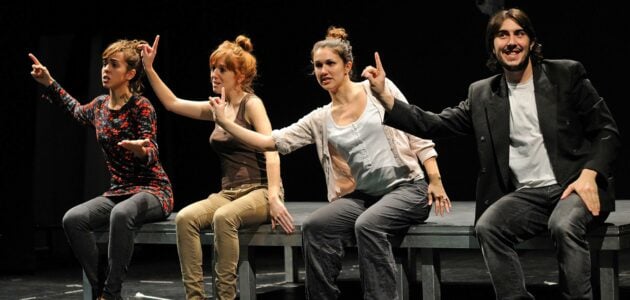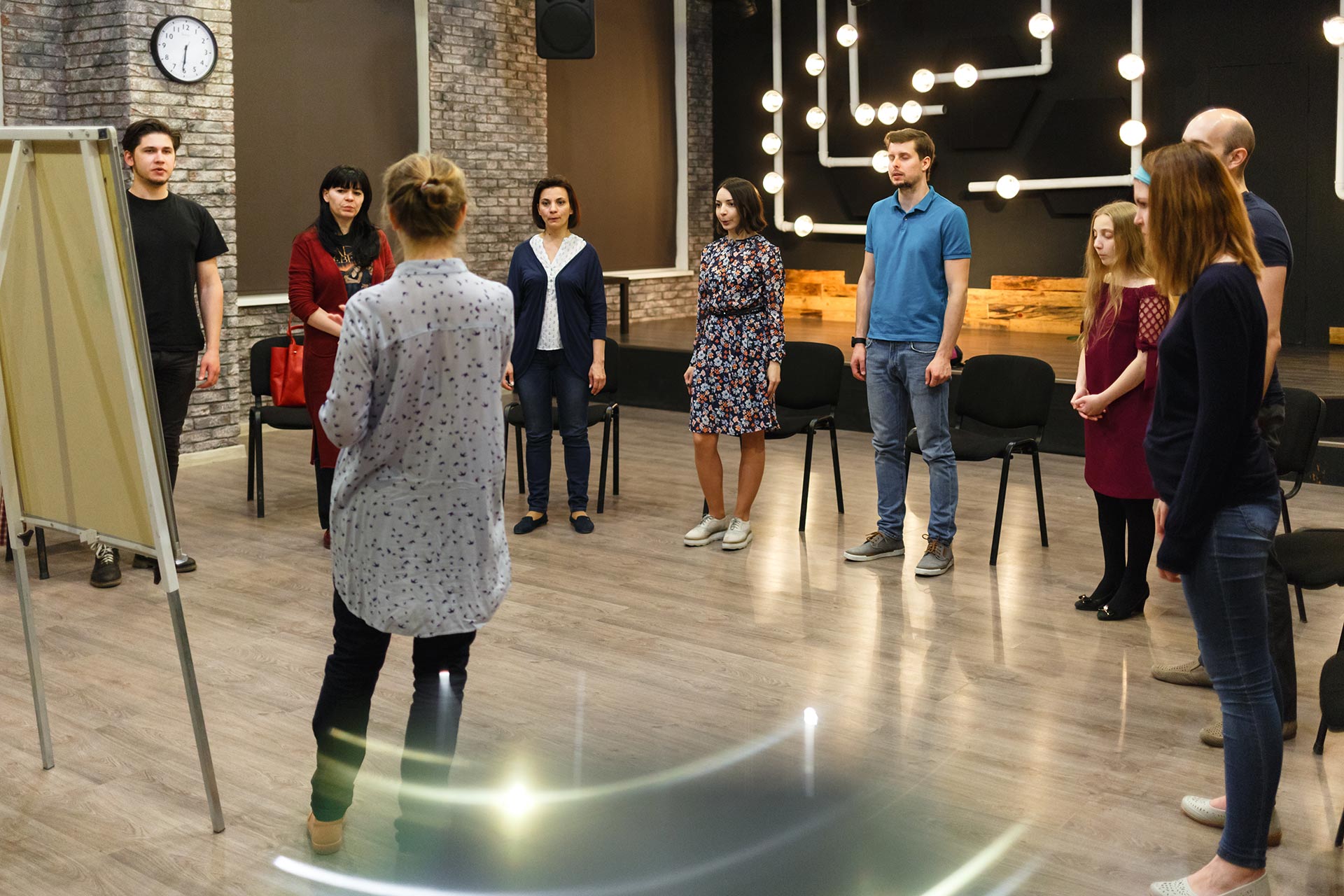
Running an Improv Class
Improvisation divides actors. Some love it, some you have to drag kicking and screaming. The truth is improvisation is beneficial for all actors, even those who hate it. It forces actors to say ‘yes’, and encourages bold and imaginative offers. So how do you get the most out of your improv class and how do you get your students to do their best work in an environment which for many is terrifying. Here are a few thoughts on running an improv class…
1. Make it a relaxed environment.
Like with any teaching environment you want to make your classroom a relaxed and judgement-free space. Make your class fun and be silly yourself. You establish the culture of the room, so from the time the class starts give it your all. If you’re energised and having a good time, your students (of any age) will too.
2. Get your students warmed up
If it’s a new class start with a silly name game to break the ice. We have some great ones listed on our acting game page. If it’s an existing class just make sure everyone is in a good mind frame to work. Students should always try to leave everything at the door. If a student is having a bad day outside of class, encourage them to shake it off and be in the moment for the class. Make your acting class a welcoming and safe place. A physical warm up is often preferable as it gets the students physically free and motivated.

3. Encourage “Yes”
It’s the old improv adage: always say yes. And though sometimes it can be fun to go against an “offer”, for the most part saying “Yes” still the best philosophy. If someone suggests a location or an idea in a scene, say yes, and then add to it. Improv is all about development. A scene quickly tires when you get stuck in specifics and don’t move a scene forward. Feel confident to throw ideas into the mix when your students are working. Be a coach on the sidelines, constantly a part of the process.
4. Go further
Once your students are confident with basic improvisation see how far you can take it. Improv is often synonymous with improv comedy, but it doesn’t always have to be funny. Can a scene be heartbreaking, or inspiring? Taking your improv class in this direction is probably best for older teens and adults. I think this is the most exciting form of improvisation, and where students can gain the most.

5. Reflect
At the end of your class reflect on what worked. Sometimes students can think because they got the most laughs they were the best, but being the class clown isn’t the objective of an improv class. Discuss why certain scenes or scenarios worked and why others didn’t.
These are some simple steps you can take to get the most out of your improv class. Remember teaching, like anything else, takes time to master. Don’t be disheartened if a certain acting game, exercise, or scene falls flat. Learn from your mistakes and move forward.

Leave a Reply